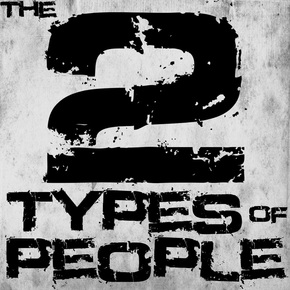
Do Not Fret - Psalm 37:1-2
Sometimes the hardest thing a Christian has to do is leave a person to their own and cease to try to convert them or see the ungodly prospering alongside, or above, himself, knowing that he is doing the will of the Father and his neighbor is doing the will of himself. "Fretting" in many of our minds brings us to the thought of a mother sitting by the window as her child is off on his first drive alone after getting his license or a person sitting down to balance the checking account and realizing that his outgo is more than is income, but that isn't what is conveyed in this passage. The Hebrew word, according to Strong's, means "to glow or grow warm; figuratively to blaze up, of anger, zeal or jealousy." The encouragement given by the once King of Judah is to not become angry when we see the ungodly! That's difficult when we are told to put away sinful acts with "malice" (Ephesians 4:31). It all comes back to the saying, "Love the sinner and hate the sin." It's extremely challenging for the faithful Christian to look out at this world while suffering and struggling through life and see the wicked going about their business seemingly happy and not having a clue what is in store for them! That's the reason Christ stressed reaching those people with the Gospel (Mark 16:15-16).
| Trust - Psalm 37:3 How do we not get angry when we see the sinful? Trust in God. The Christian realizes three things 1) God is real (Genesis 1:1), 2) God is love (1 John 4:8) and 3) God cares for those He loves (John 3:16, Romans 8:31). Trust is something that is earned and our God has abundantly shown His worthiness to have our trust extended to Him. When we look at the world and see that it is full of spiritual adultery and fornication and we don't understand why we turn to God and realize that He is still in control and the main reason for Him for allowing the world to continue until today is because He is so loving that He doesn't want to bring judgment until He absolutely has to (2 Peter 3:9). Therefore, our hope is based upon the evidence of the love of God and His wonderful mercy extended to all those willing to obey His commands. | Do not fret because of evildoers, Nor be envious of the workers of iniquity. For they shall soon be cut down like the grass, And wither as the green herb. Trust in the Lord , and do good; Dwell in the land, and feed on His faithfulness. Delight yourself also in the Lord , And He shall give you the desires of your heart. Commit your way to the Lord , Trust also in Him, And He shall bring it to pass. He shall bring forth your righteousness as the light, And your justice as the noonday. Rest in the Lord , and wait patiently for Him; Do not fret because of him who prospers in his way, Because of the man who brings wicked schemes to pass. Cease from anger, and forsake wrath; Do not fret— it only causes harm. (Psalm 37:1-8 NKJV) |
This is the best part in the entire passage, I think. David is speaking to people that are simply getting disgusted with sin to the point of physical anger and he simply says, "Delight yourself also in the Lord." What a statement! In a sense he is saying, "Stop looking out and look up! Don't you realize that you are the richest, healthiest, most well off person in the universe? You're a child of God!" True happiness is hard to come by in today's world just as it was when David sat down to pen the thirty seventh psalm. That is one of the reasons why Christ had to come to earth, to give mankind a glimmer of hope and the true happiness that only comes from being a child of God (John 10:10). Instead of the worry, anger and distrust that we gather from our surroundings, we have happiness knowing that God is right there watching and caring for us in every way we need.
Commit - Psalm 37:5-6
But, that delight and trust only comes through committing your life to serving the one true God of the universe. Commitment, a word despised today in light of the post-modern society in which we live, isn't simply making the mental or verbal acknowledgment of allegiance but is rather, as the Hebrew word suggests, "rolling the burden of life upon the Lord (Treasury of David, Spurgeon)." It is realizing that you can't carry the weight of this life alone and if you try you will be squished under the immense burden. It gives the idea of letting God handle certain things, giving your life to Him to control and carry. That is a daunting task at times because no person really wants to have to rely solely on someone else for their existence, but that is what God wants. We want to do it our way and be able to handle everything but we can't and when we realize that fact God is standing right beside us begging us to let Him help. If one were to look through history, especially the divine history given to us in the Old Testament (cf. Romans 15:4), he would see God always helping His creation even when we really didn't want help, like when we killed the Christ even though He was here to help.
Rest - Psalm 37:7
When we give our lives to God in obedience to His word and trust in His love and mercy, and only when we do these things, we will have rest. We won't have to worry about the physical needs (cf. Matthew 6:33) because He will provide. We won't have to get angry when we see sinners living lives of apparent luxury because we will realize their joy is temporary and superficial. We won't even have to worry if we are faithfully living a godly life because God is there telling us just how to do it (2 Peter 1:3). That is true rest!
Cease from Anger - Psalm 37:8
And, finally, when we have that peace of God that passes all understanding (Philippians 4:7) we will cease to be angry at the outside world because we won't be worried about what they are doing but will be meditating on what God is doing! After all, anger "only causes harm (Psalm 3










 RSS Feed
RSS Feed
